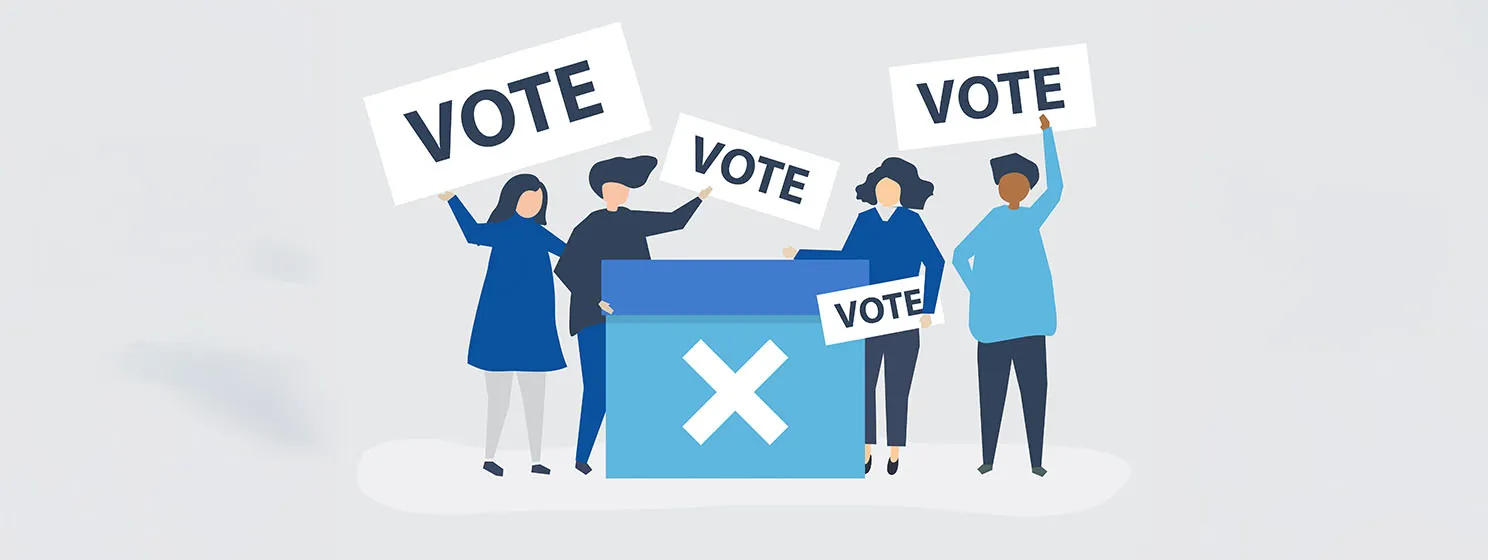|
Getting your Trinity Audio player ready...
|
In an era where trust in electoral processes and governance systems is increasingly fragile, the need for transparent, secure, and verifiable voting mechanisms has never been more critical. BSV, a blockchain designed to scale and fulfill Satoshi Nakamoto’s vision of a peer-to-peer electronic cash system, offers a groundbreaking solution for decentralized voting systems. By leveraging its immutable ledger, high transaction throughput, and low-cost transactions, BSV can revolutionize voting—from global elections to niche micro-democracies like decentralized autonomous organizations (DAOs) and local cooperatives. This article explores how BSV addresses the challenges of traditional voting systems, its unique advantages for niche voting applications, and its potential to reshape democratic processes.
The crisis in traditional voting systems
Traditional voting systems, whether paper-based or electronic, face persistent vulnerabilities; centralized databases are prone to hacking, as seen in the 2016 U.S. election interference concerns, while paper ballots can be lost, manipulated, or miscounted. Transparency is often lacking, with citizens unable to independently verify results. In niche contexts like corporate governance or community organizations, inefficiencies in vote tallying and disputes over legitimacy further erode trust. There is a growing public demand for systems that ensure every vote is provable and untouchable.
Centralized digital voting platforms, while convenient, introduce risks of censorship and control. Governments or corporations managing these systems can suppress votes, alter records, or exclude participants based on arbitrary criteria. These challenges are particularly pronounced in micro-democracies—small-scale governance structures like DAOs, neighborhood councils, or worker cooperatives—where frequent, low-stake votes require cost-effective, secure solutions. BSV’s decentralized architecture and technical capabilities position it as an ideal platform to address these issues, offering a level of transparency and security that traditional systems cannot match.
BSV’s technical edge for voting systems
BSV’s design makes it uniquely suited for voting applications. Its unbounded block size—reaching 4GB in recent tests—enables massive transaction throughput, with the BSV Infrastructure Team reporting 1,000,000 transactions per second (TPS) on the Teranode upgrade. This scalability ensures that BSV can handle the high volume of votes required for national elections or frequent micro-votes in DAOs without network congestion or delays. Unlike blockchains like Ethereum, which face high gas fees and throughput limits, BSV’s low transaction fees—often below $0.00011—make it economically viable for small-scale, high-frequency voting.
The immutability of BSV’s proof-of-work blockchain is a cornerstone of its voting potential. Once a vote is recorded on-chain, it cannot be altered or deleted, ensuring a tamper-proof record. Each vote can be timestamped using BSV’s native timestamping capabilities, providing a verifiable audit trail. Voters can use Simplified Payment Verification (SPV) to independently confirm their vote was counted, without relying on a central authority. This transparency addresses concerns that verifiable voting is the only way to restore trust.
BSV’s smart contract functionality further enhances its voting capabilities. Smart contracts can automate vote tallying, enforce eligibility rules, and ensure anonymity where needed, using cryptographic techniques like zero-knowledge proofs. For instance, a voter could prove they meet eligibility criteria (e.g., membership in a cooperative) without revealing their identity. This flexibility makes BSV adaptable to diverse voting scenarios, from anonymous ballots to weighted shareholder votes.Niche applications: Micro-democracy
BSV’s low-cost, scalable infrastructure shines in niche voting contexts like DAOs, local cooperatives, and community organizations. DAOs, which govern decentralized projects through token-based voting, often face challenges with voter apathy and high costs on other blockchains. BSV’s micropayment capabilities allow DAO members to vote frequently without prohibitive fees, fostering active participation. For example, a DAO managing a decentralized fund could use BSV to record daily micro-votes on investment decisions, with each vote costing a fraction of a cent.
Local cooperatives, such as agricultural or housing co-ops, can leverage BSV for transparent governance. Votes on resource allocation or leadership elections can be recorded on-chain, ensuring members can verify outcomes. In regions with limited digital infrastructure, BSV’s peer-to-peer nature allows offline communities to sync votes via mobile apps, bridging accessibility gaps. These applications, rarely discussed in mainstream blockchain conversations, highlight BSV’s potential to democratize governance at the grassroots level.
The future: BSV as a voting standard
BSV’s potential to transform voting extends beyond niche use cases. Its regulation-friendly design, built to comply with legal frameworks, makes it appealing for governments exploring blockchain-based elections. Pilot projects, suggest BSV could underpin national voting systems, reducing fraud and increasing turnout. By integrating with digital identity protocols, BSV could ensure voter authenticity while preserving privacy and addressing concerns about centralized digital IDs.
Challenges remain, including educating stakeholders and countering misinformation about BSV’s capabilities. However, ongoing developments, such as Teranode’s scalability enhancements and the BSV Association’s outreach, are paving the way for broader adoption. As trust in traditional voting erodes, BSV’s transparent, decentralized approach could become a global standard, from micro-democracies to national elections.
Conclusion
BSV offers a powerful solution to the transparency and security challenges plaguing voting systems. Its scalable, immutable blockchain, low-cost transactions, and smart contract capabilities make it ideal for both large-scale elections and niche micro-democracies. BSV restores trust in governance processes by enabling verifiable, tamper-proof voting empowering communities and individuals. As the world grapples with democratic deficits, BSV stands poised to redefine how we vote, proving blockchain can deliver on its promise of decentralization and fairness.
Watch: State of the Union with John Pitts

 08-08-2025
08-08-2025 





